We’ve identified 15 accredited Online Accelerated Teaching Degree Programs for 2024. Compare schools & accelerated programs.

The National Center for Education Information (NCEI) estimates there will be a need for 4 million teachers in the next year.
Editorial Listing ShortCode:
You might be teaching your own class in less than 2 years if you take advantage of an accelerated program that leads to licensure.
Types of Accelerated Teaching Degree Programs

A teacher’s education comes in two parts:
- A Bachelor’s degree typically in Education but can also be in Science or Math, or even a non-education related field.
- Teacher’s certification or license, which means taking a teacher education program that involves a student teacher internship.
There are three primary degree options if you’re looking to earn an online bachelor’s degree in teaching: Bachelor of Arts (BA), Bachelor of Science (BS), and Bachelor of Education (B.Ed.). If you’ve already found a program you love and that really suits your interests and goals, you may not have a choice as to which degree you’ll pursue.
Most programs will only offer one of the above degrees. Those that offer more than one type will have different requirements for each degree. For example, a BS in Education may require you to complete more Math or Science credits, while a BA in Education may require you to complete more Foreign Language credits. There is no uniform distinction, and it’s really up to each program as to what it wants to require for its degree.
If you have the certification and licensure required by the state to teach in a public school or a degree that trained you to teach your specialty subject(s) in a private school, most employers won’t have a preference for the specific type of degree you have (BA versus BS, for example). There isn’t usually a preferred degree, but it’s important that you know of the potential options.
Here are some of the different types of accelerated teaching degree programs you can look into. The exact type of degree you earn will vary by school.
- Bachelor’s in Elementary Education
- Bachelor’s in Interdisciplinary Studies (K-8)
- Bachelor’s in Mathematics (5-9 or 5-12)
- Bachelor’s in Science (5-12 Biological Science)
- Bachelor’s in Science (5-12 Chemistry)
- Bachelor’s in Science (5-12 Geosciences)
- Bachelor’s in Science (5-12 Physics)
- Bachelor’s in Science (5-9)
- Bachelor’s in Special Education
And even within each of these teaching degrees, you may specialize in your favorite topic: science, math, literature, physical education, music, etc.
Sample Courses in an Accelerated Teaching Degree Program

Before you are handed a classroom full of students, you will likely prepare with classes like:
- Children’s Literature
- Classroom Management, Engagement and Motivation
- Educational Philosophy for Teachers
- Elementary Disciplinary Literacy
- Introduction to Instructional Planning and Presentation
- Language Arts Instruction and Intervention
- Learning Theory
- Psychology for Educators
- Psychology of Childhood
- Wellness in the Early Childhood Setting
Your teaching degree may give you the knowledge and practice you will need to be an inspiring teacher.
Editorial Listing ShortCode:
Teaching Career Outlook

Job satisfaction is pretty high among teachers. Career Cast ranked teaching as the #6 most satisfying job. In general, teachers feel like what they do makes a positive difference and helps others. Other perks of being a teacher may include the number of days off that can be spent with family and friends and the friendly work environment.
Teaching may not be the highest paid career out there, but it may still pay pretty well.
The Bureau of Labor Statistics reports that teachers make about $47,000 per year, on average.
There are salary differences between elementary, middle, and high school teachers as well as between public and private school settings. Generally, teachers’ salaries rise each year to match their experience.
Careers with an Accelerated Teaching Degree
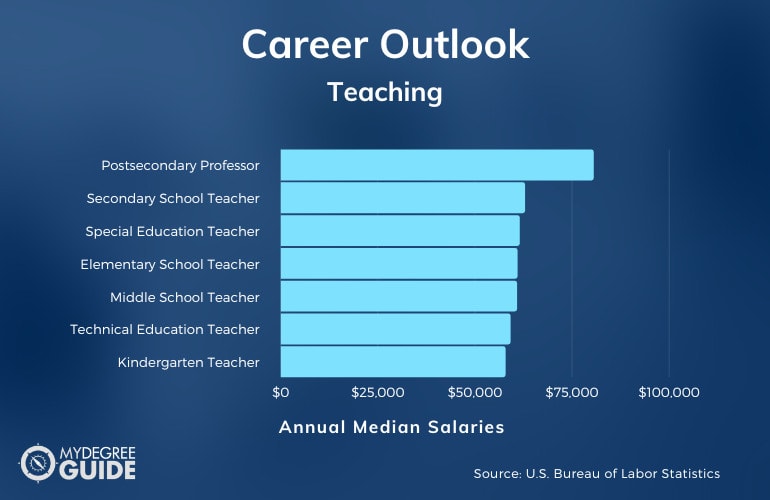
Teaching covers all the ages. You may choose to be a preschool teacher all the way up to a post-secondary teacher.
Pre-school teachers can often start working with an associate’s degree, but all other grades from kindergarten to grade 12 will require a bachelor’s degree. If you have dreams of teaching at a university, you may be looking at earning an online master’s in teaching or doctorate level training in education.
Although most teaching jobs may pay more than the average occupation, this is not often a career field that you go into for the money. Teaching is something you might do to make a difference.
A teacher’s job may consist of:
- Class preparation
- Lesson planning
- Instructional time
- Extracurricular activities
- Parent-teacher meetings
- Professional development
Salaries for teachers vary depending on the grade level and location. Here are some averages to give you an idea of what to expect.
| Career | Annual Median Salary |
| Postsecondary Professor | $80,560 |
| Secondary School Teacher | $62,870 |
| Special Education Teacher | $61,500 |
| Elementary School Teacher | $60,940 |
| Middle School Teacher | $60,810 |
| Career or Technical Education Teacher | $59,140 |
| Kindergarten Teacher | $57,860 |
| Adult Literacy Teacher | $55,350 |
| Preschool Teacher | $31,930 |
Source: Bureau of Labor Statistics
The job market for teachers is expected to see a job opening for almost 2 million new teachers in the next years. This is not because of new job creation but because of the current teachers retiring.
Editorial Listing ShortCode:
There may be many openings waiting to be filled when you graduate.
Teacher Certification and Licensure

If you plan on teaching in the public school setting, you’ll either need certification/licensure or show proof that you’re pursuing it within a certain number of years of your initial hire. Each state has its own requirements and set of expectations.
Here’s an example: In the state of New York, you can submit an application for the state to review your credentials. If the state deems your credentials satisfactory, you’ll be issued a certification to teach in New York. If not, you will receive a detailed explanation as to what is required of you to receive certification.
If you’ve chosen a program that automatically prepares you for certification in New York, you may obtain your certification through your program and bypass contacting the state. Another state may have a completely different system altogether. Some states require certain examinations to be completed and passed.
If you plan to teach in a public school system, licensure and certification may be required eventually. Many private schools don’t require it and may be a nice option for those looking for smaller classes (on average).
Private schools may also be a great option if you fail to obtain licensure/certification right away or want to put it off for whatever reason. Be aware that private schools usually pay a slightly lower salary than public schools.
Why Enroll in an Online Accelerated Teaching Degree Program?

Most universities with accelerated programs will offer staggered start dates, so you may start in September like everybody else or you may start when it’s more convenient for you.
Rather than taking classes that last a full semester, accelerated classes often last 6-8 weeks. You cover all the same coursework and still get to participate in great classroom discussions, but you do it in half the time.
If you don’t live anywhere near a college or university that offers a bachelor’s degree in teaching or if moving close to one isn’t an option for you, an online program doesn’t require you to move, commute, or change your schedule. There are many reputable and accredited online programs that offer teaching degrees.
Online programs are usually less expensive than on-campus programs, but research tuition and fee rates before assuming which option will be more affordable for you. What you almost always save going the online route, though, is time. You may easily and conveniently complete your classes according to your schedule.
Online accelerated programs provide highly respected degrees. In fact, there is no difference between holding a degree you earned online versus one you earned by going to in-person classes, or one you earned in two years or less versus one that took you the traditional four years to complete. Your degree will be exactly the same. Just make sure that you attend an accredited university.
Practice in the Field

Even if you complete your degree online, most programs require a practicum component as part of their degree requirements. This means that you’ll be required to shadow a current teacher in the field to gain hands-on learning experience.
This experience may be invaluable to your future career as a teacher, and many employers will prefer that you have already spent hours with real children in a real educational setting.
Be sure to choose a program that will allow you to complete your practicum component where it’s convenient for you.
Editorial Listing ShortCode:
How to Accelerate Your Teaching Degree Even More

Are you excited about getting into a classroom and being the teacher, not the student? There is no reason to doddle along, taking 4 years to complete your classroom work. Besides taking accelerated classes, you may also use three tips to save yourself years of work and thousands of dollars.
1. Test out of college classes. If you already know the material for a class you need to take, or can spend a couple of weeks studying the material on your own, you may get credit for the class by taking and passing the exam.
With the College Level Examination Program (CLEP), you can sign up to take 30 credits via credit by exam. Each test only costs $89, and you only need a 50% to get credit for the class.
You might test out of classes like:
- Algebra
- American Literature
- Biology
- Chemistry
- Composition
- History of the United States
If this material is already familiar to you, you may try and pass out of these Gen Ed courses in college.
2. Get college credit for your life and work experience. Have you been dreaming of teaching for a while? Maybe you worked in a preschool? Or volunteered as a classroom assistant? Took a course on the psychology of childhood? Or worked as an Educational Aide?
You may take that life and work experience and receive credit through your university. Most universities will have a program geared toward assigning you credit for experience from:
- Early Childhood Education
- Disney College Program
- Teaching English as a Second Language
- Youth Ministry
Ask your college advisor how it works and potentially earn up to 15 credits for the learning you already have done in life.
3. Stay continuously enrolled with max course load. Most high school graduates who are pursuing a degree in teaching will take 30 credits each year. This will take them 4 years to complete their degree and leave plenty of time for socializing, partying, and spring breaks.
BUT, if you want to finish faster, you can take up to 18 credits each semester. And you don’t need to stop for the summer. You can take 18 credits in the fall, 18 credits in the winter, and 18 credits in the summer semester. That may give you 54 credits in 12 months. Almost double the typical rate.
Editorial Listing ShortCode:
Bonus: Transfer Your Existing College Credits
A teaching degree can be ideal for transferring existing college credit. If you already have a bachelor’s degree in a non-teaching field, you may then take a teacher certification program and apply to be a teacher.
If you don’t already have a degree, any existing credit you have may still be valuable if it is:
- Earned from an accredited college
- Completed with at least a C in the class
Even if the credit is not applicable for your teaching degree, you may apply the credit to your electives.
Teaching Degree Accreditation

A degree does not allow you to teach. Your online teaching degree is the first building block you need. Your teacher certification program will include a student teaching experience. Student teaching is typically a full 15 weeks of being in a classroom every school day of the semester. You may know if you have what it takes to be a teacher after that!
Then, you wrap up your classes in the certification program and are now eligible to apply to get a teacher’s license.
In order to apply for a license, you will need to graduate from an accredited university. Check that your school is accredited by a regional accreditation board or by one of these national authorities:
- NCATE (National Council for Accreditation of Teacher Education)
- Council for Higher Education Accreditation (CHEA)
- Distance Education Accrediting Commission (DEAC)
OR
- Approved by your state’s Department of Education
A teaching license is absolutely mandatory to have for grades K-12 in a public school setting.
Financial Aid Opportunities
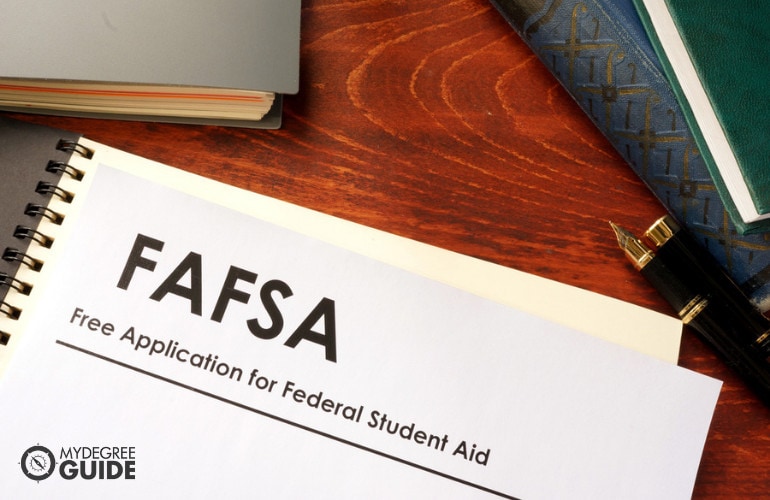
As you begin looking at universities to attend, you should also look into your financial aid opportunities. You can start by filling out the Free Application for Federal Student Aid (FAFSA). This will tell you how much money you qualify for in grants or loans.
You can then research private organizations that offer scholarships to students in your demographic or check with the universities you’re interested in attending to see what scholarships they might offer you. You may also qualify for work-study programs at your university or payment plans to make earning your degree easier.
List of Universities Offering Accelerated Teaching Degree Programs Online
Methodology: The following school list is in alphabetical order. To be included, a college or university must be regionally accredited, offer degree programs online or in a hybrid format, and have accelerated classes that are 8 weeks or less in duration.
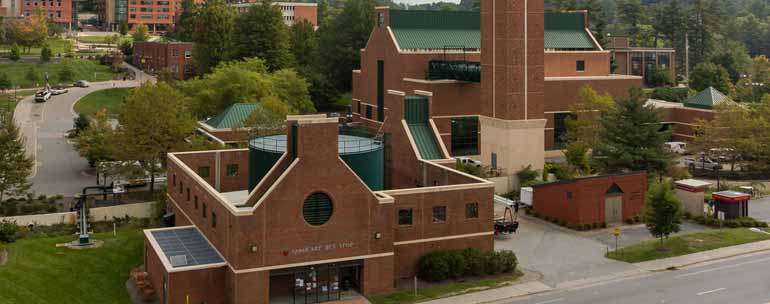
Appalachian State University is accredited by the Commission on Colleges of the Southern Association of Colleges and Schools.
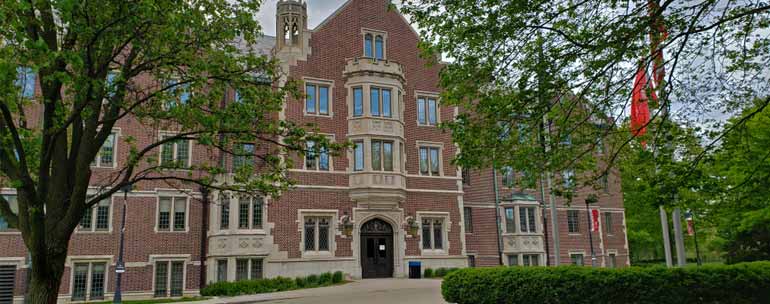
Ball State is accredited by the Higher Learning Commission.

The Baptist College of Florida is accredited by the Southern Association of Colleges and Schools Commission on Colleges.

Central Methodist University is accredited by the Higher Learning Commission.
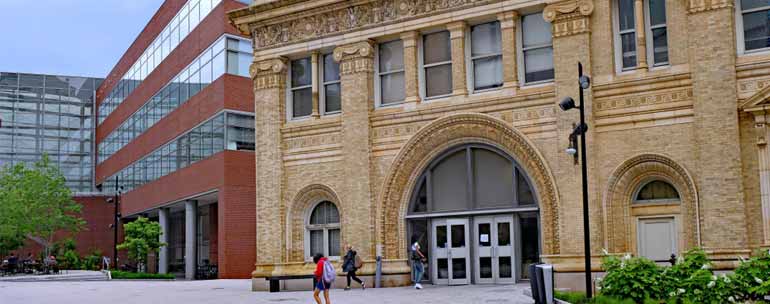
Drexel University is accredited by the Middle States Commission on Higher Education.
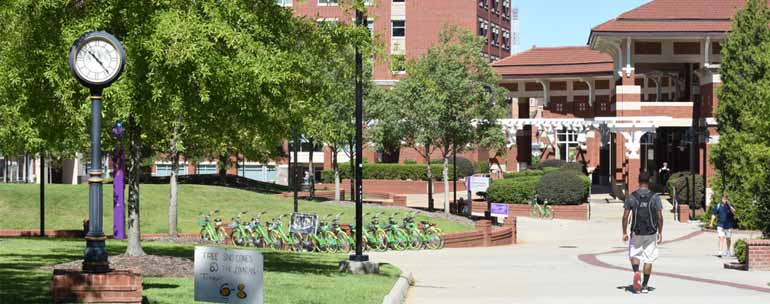
East Carolina University is accredited by the Southern Association of Colleges and Schools Commission on Colleges.

Florida International University is accredited by the Southern Association of Colleges and Schools Commission on Colleges.
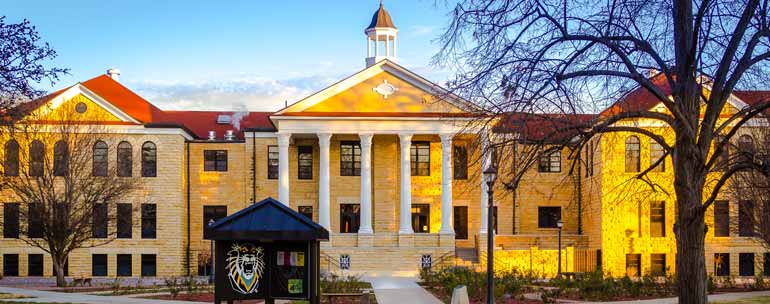
FHSU is accredited by the Higher Learning Commission.

Liberty University is accredited by the Southern Association of Colleges and Schools Commission on Colleges.
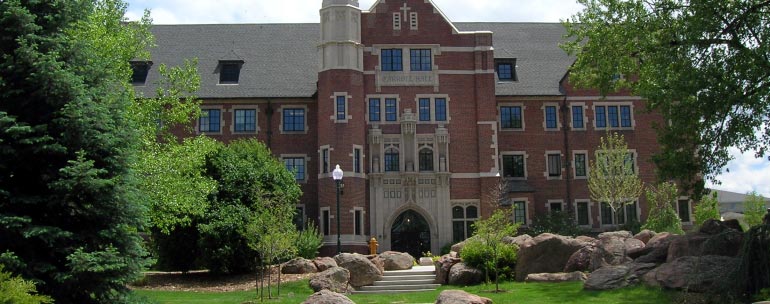
Regis University is accredited by the Higher Learning Commission.
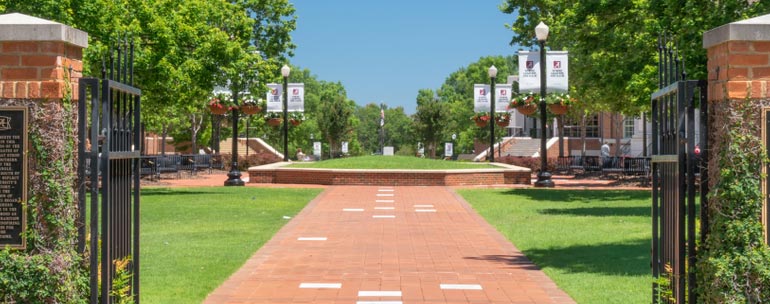
The University of Alabama is accredited by the Southern Association of Colleges and Schools Commission on Colleges.
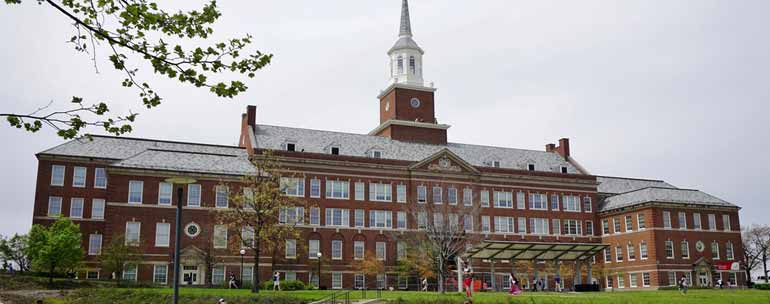
The University of Cincinnati is accredited by the Higher Learning Commission.

The University of Massachusetts Global is accredited by the WSCUC Senior College and University Commission.

The University of North Carolina Wilmington is accredited by the Southern Association of Colleges and Schools Commission on Colleges.

The University of West Florida is accredited by the Southern Association of Colleges and Schools Commission on Colleges.
Starting an Accelerated Teaching Degree Program

If you’re ready to take your Education education to the next level, here’s what we suggest as your next steps:
- Determine the age and any specializations you want to focus on.
- Narrow down your choice of schools and apply to 3-5 universities.
- Fill out the FAFSA and research other financial aid opportunities.
Once you receive your acceptance letters, fast-track your degree by transferring any previous credits you might have, testing out of as many classes as you can, seeing what work or other experiences may earn you credit, and taking the max course load possible. If you do, you might graduate in two years or less.

